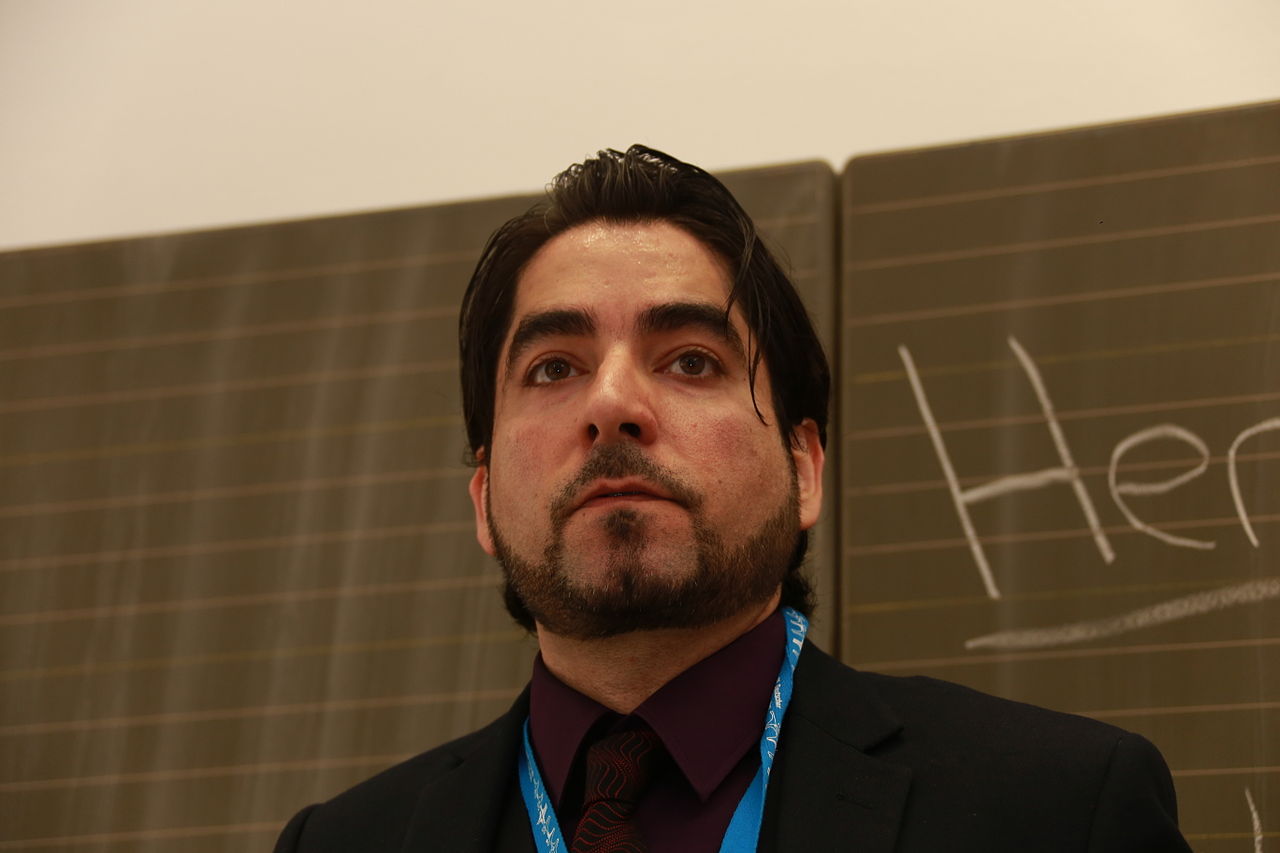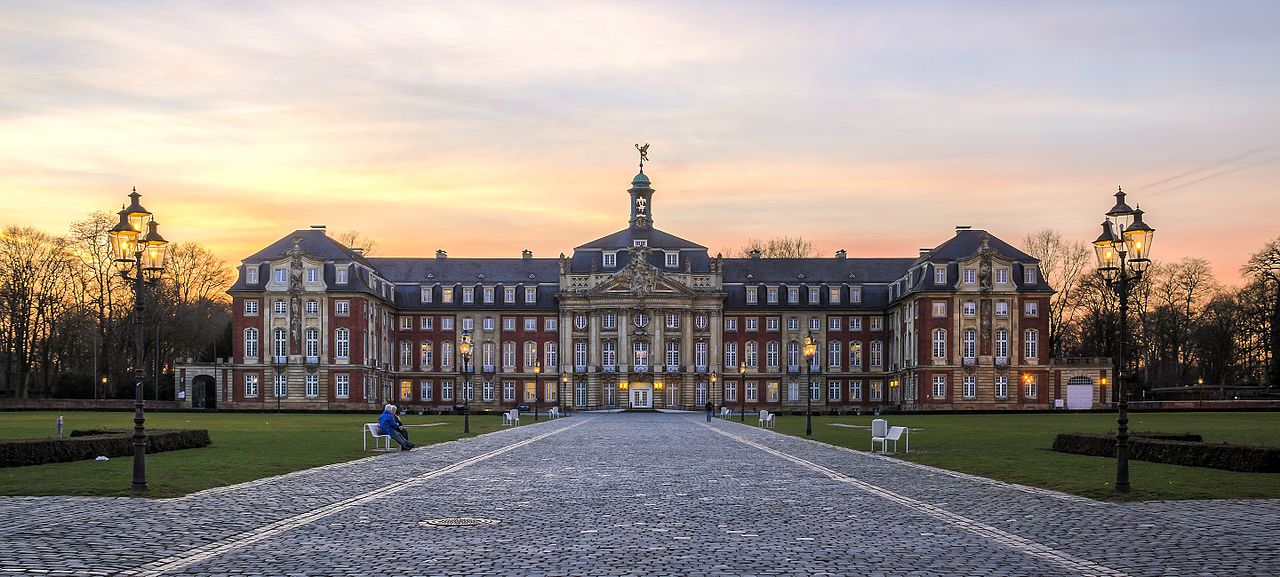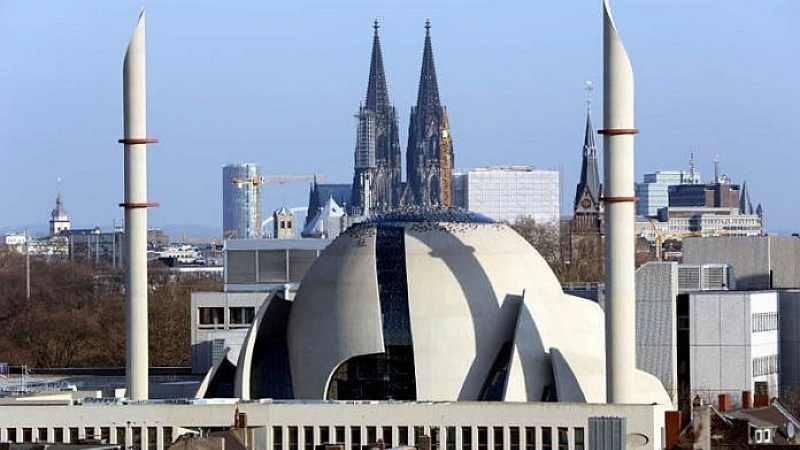Austrian theologian Mouhanad Khorchide, professor for Islamic religious pedagogy and director of the Centre for Islamic Theology at the University of Münster in Germany, has published the first part of a wide-ranging commentary of the Qur’an – a project that is to comprise 17 volumes upon completion.
A large-scale tafsir
The book – titled God’s Revelation in the Words of Mankind: The Qur’an in the Light of Mercy – advocates for a what it presents as a dialogical, open approach to Islam’s holiest book. Monological understandings, according to Khorchide, conceive of the Qur’an as a legal manual, unidirectionally informing believers how to organise the particulars of their daily lives.
Khorchide’s ambition is instead to showcase the Qur’an’s larger ethical dimension: with the Qur’an being an ongoing dialogue between God and humanity, Khorchide stresses the openness of the text to different interpretations. The Qur’an appears less as a book of laws than a guidance to ethical inquiry, with the concept of ‘mercy’ serving as its leitmotif.1

Roots in Christian Bible criticism
The blueprint for this research agenda is derived from the ‘historical-critical method’ of Bible studies, as developed in 18th– and 19th-century Germany. This locates the Quranic commentary squarely in a quintessentially German scientific landscape, as it engages above all with German and German-language authors from (non-Islamic) theologies.
In the past, Khorshide’s methodological orientation – broadly shared by his Centre for Islamic Theology at large – has caused major controversy among Muslim commentators in Germany. The country’s largest Islamic associations have criticised Khorshide’s interpretations as too free-wheeling, lacking in theological substance, and – perhaps above all – as politically opportunistic. Their attempts to have Khorshide removed from his university chair have failed, however.
Public activism
The accusations directed at Khorchide have at times been hysterical and unfair. However, even some of those who, like Khorchide, find the theological offerings of Germany’s large Islamic associations unsatisfactory, have come to see the Münster theologian’s work with a sceptical eye.
Some of this criticism has focused on Khorchide’s willingness to engage with highly problematic public pundits, such as Hamed Abdel-Samad. In March 2019, Khorchide appeared at a lecture and book-signing of Thilo Sarrazin, author of several pseudo-scientific best-sellers on the racial and intellectual inferiority of Muslims (and their supposed plan to take over Germany). While Khorchide took to the stage in part in order to oppose Sarrazin’s views, it remains questionable whether his presence did not also confer a further veneer of legitimacy to the biological and cultural racism peddled by Sarrazin.2
Forays into politics
Yet it is above all his increasing forays into politics that have rendered Mouhanad Khorchide a somewhat divisive figure. Already in 2015, he participated in the foundation of the Muslim Forum Germany – a self-declaredly ‘humanist’ initiative of Muslim and non-Muslim public figures. In spite of its well-established links to conservative politicians and the Christian Democratic party, the initiative proved a stillbirth.
In March 2019, Khorchide proceeded to create a further initiative – the Muslimische Gemeinschaft NRW, active in Germany’s most populous state of North-Rhine Westphalia (NRW). The MG’s founding took place in close cooperation with the current conservative-liberal coalition government, as well as with security and law enforcement agencies. The organisation – whose name translates as Muslim Community NRW – seeks to challenge the dominance of established Islamic associations seen as too conservative’
Foremost among the MG’s founders was Serap Güler, an outspoken CDU politician currently serving as State Secretary for Integration. She achieved national-level prominence when advocating a hijab-ban for girls. Her government has sought to move away from its established linkages with Turkish-dominated Islamic associations and has been searching for new cooperation partners to implement Islamic religious education programmes in schools.
A German state Islam?
While a growing number of Muslim activists have come to share the urge to move beyond the stale and politically compromised environment of established Islamic associational players, Khorshide’s willingness to cooperate with policy-makers, state agencies, and security services in the quest to build alternative institutional structures has raised eyebrows. The dominance of such politico-securitarian interests is reflected by the fact that the only other theological figure on the MG’s board is Dina El-Omari from Khorchide’s own Centre for Islamic Theology.
Lamya Kaddor, herself a long-time advocate of a self-consciously liberal Islam, criticised that Khorshide’s initiative, while perhaps salutary in itself, “has unnecessarily strengthened the disastrous impression of a German state Islam”.3 Green Party politician Ali Baş concurs: “That Islam is positioning itself in a more diverse manner […] is good. [But] in the case of the […] project ‘Muslim Community NRW’, [its] proximity to the state and the regional political embroilment of a number of actors prompt critical questions.”
Dass sich der Islam hierzulande vielfältiger aufstellt ist gut. Beim vom Islamprofessor Khorchide gegründeten Projekt "Muslimische Gemeinschaft NRW" werfen Staatsnähe+landespolitische Verflechtungen einiger Akteur*innen
kritische Fragen auf. https://t.co/qhzzGcMz2F— Ali Baş (@alibas76) March 30, 2019
Blogger and activist Akif Sahin observed that, with many prominent political and police functionaries occupying leading positions in the Gemeinschaft, any ‘dialogue’ between the MG and political authorities would resemble an exercise in “cronyism”: NRW policy-makers were simply building their own preferred Islamic association, with themselves as key members.4 After such sustained criticism, Serap Güler stepped down from the board.
The politicisation of research on the ‘Muslim question’
Thus, Mouhanad Khorshide’s political activism threatens to overshadow his Quranic commentary and any of its merits. As such, Khorshide is part of what Berlin-based academic Schirin Amir-Moazami refers to the “politicisation of Islam-oriented research in Europe”. In her new edited volume The Inspected Muslim Amir-Moazami observes that academic debate on Islam in Europe is “marked in particular” by a “perpetual sliding between scholarship and political intervention”.5
Schirin Amir-Moazami discusses her new book with members of the Alhambra Society.
Schirin Amir-Moazami’s anthology sheds above all a critical light on the booming field of quantitative research aiming to measure, delineate, and render governable Muslim populations across the content. To be sure, a Quranic commentary does not promise policy effectiveness of this kind. Yet the keen interest policy-makers are taking in Mouhanad Khorchide’s work – together with the increasingly close linkage between the local state government and the Münster Centre for Islamic Theology – demonstrates that even resolutely qualitative work is far from politically anodyne.
Sources
https://en.qantara.de/content/mouhanad-khorchides-gods-revelation-in-the-word-of-men-a-koran-for-the-21st-century?nopaging=1 ↩
https://de.qantara.de/content/zerrbild-des-islam-khorchide-wirft-sarrazin-schwarz-weiss-malerei-vor ↩
https://www.welt.de/regionales/nrw/article191070125/Kritiker-werfen-dem-Land-vor-am-deutschen-Staatsislam-zu-arbeiten.html ↩
https://www.akifsahin.de/2019/03/27/mouhanad-khorchide-islam-professor-gruendet-verband-mit-lka-mitarbeitern-und-staatssekretaerin-fuer-integration/ ↩
https://en.qantara.de/content/the-politicisation-of-islam-scholarship-in-europe-muslims-under-scrutiny ↩






